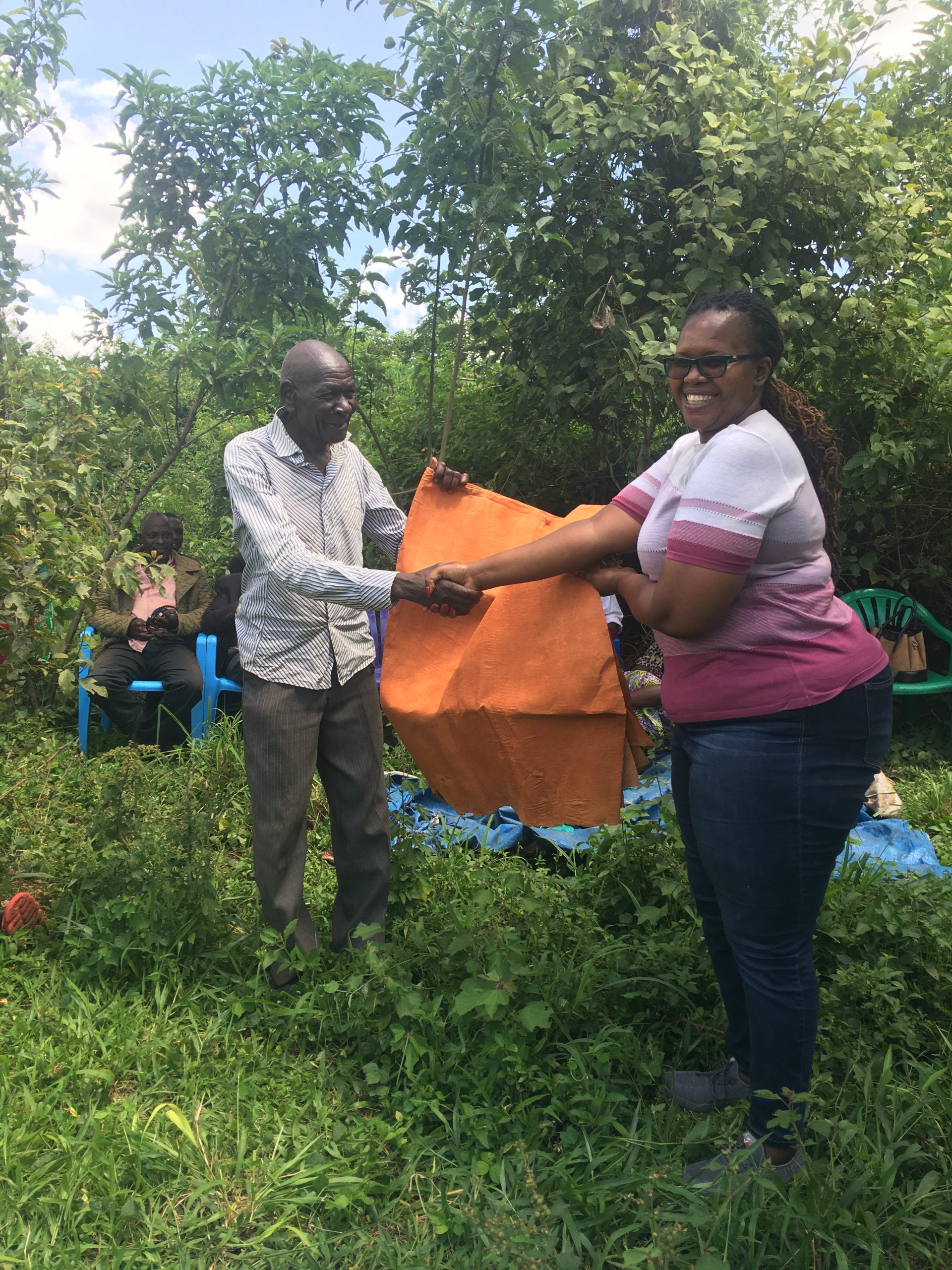Thursday, December 2nd, 2021 | By

On a beautiful Wednesday afternoon characterized by scotching sun, fresh air, slightly cold breeze and singing birds, the members of Abahangya clan scattered under tree shades near Kihagya natural forest as they welcomed a team from National Association of Professional Environmentalists (NAPE) and a visitor from African Biodiversity Network (ABN). One could tell that the communities were enjoying the natural beauty that they would want to conserve for their generations to come.
Located in Kakindo village in Kyabigambire Sub County Hoima district, Kihagya forest, is a sacred natural site for Abahagya clan members. It is about 100 meters away from the homesteads of Abahagya clan. The forest which is seated on about 3 acres of land is characterized by thick forest with overgrown trees; some of which have dried up, and thick shrubs.
However, the forest has been faced with increasing threats of destruction with people clearing land for cultivation, cutting down trees and fetching firewood which questions its future existence for future generations to benefit from its cultural and biodiversity importance.
Suluman Bahugana, who is the chief custodian of the natural site in his 90s says the forest is highly respected due to its cultural importance and they use cultural beliefs which were left by their forefathers to protect the forest. He attributes the massive encroachment to eroding away of traditional religion and culture by introduction of Christianity and lack of sensitization of the young generation.
During the meeting that was held on November 10, Bahugana called for more efforts from National Association of Professional Environmentalists (NAPE) and partners to continue supporting the communities to save the remaining forest.
“The forest was a no-go zone for any other activities apart from cultural activities. “No one would go to this forest to collect firewood, dig, cut a tree or do any other activity because it was considered as a holy place.”
Perez Nyangabyaki says NAPE has helped in saving the forest that was once about five acres from further encroachment by fencing it. He says a lot needs to be done especially engaging the youth intergenerational learning for the youth to understand and appreciate its importance rooted on culture and using the forest for livelihood improvement by promoting beekeeping and adding value to the herbal medicine collected from the forest.
“People’s faith on indigenous taboos based on cultural and spiritual faith is being lost and the traditional conservation practice is weakening because the young generation is busy encroaching on the sacred natural sites because they are not sensitized,” said Nyangabyaki
He added, “I call upon NAPE to help us to facilitate intergeneration learning so that we the elder people can transfer the knowledge to the young generation and also show them that besides cutting down trees, they can still earn a living by adding value to the herbal medicine and other non-timber products like beekeeping.”
Addressing the communities, Ventor Mwongela, the ABN Communications and partnership officer said she was happy that the communities are determined protect the ecosystem due to its cultural and ecological importance. He said the elders are the custodians of indigenous knowledge and need to transfer it to young generations.
She said ABN will partner with NAPE to continue strengthening the community cultural governance systems so that the communities can protect their cultural heritage.
“I am happy that you are determined to conserve the biodiversity and you have both women, elderly and youth on board which promotes intergenerational learning. I have taken note of your needs ad ABN will continue partnering with NAPE to ensure that the ecosystem is conserved and knowledge is transferred to generations,” Mwongela said.
Copyright ©2025 Community Green Radio . All Rights Reserved. Designed : Lwegatech